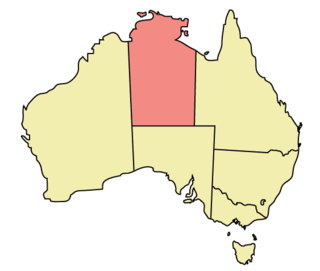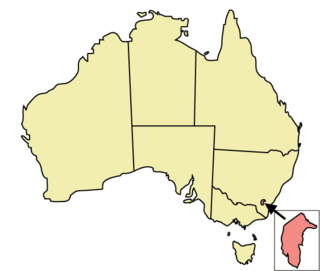An ex post facto law is a law that retroactively changes the legal consequences of actions that were committed, or relationships that existed, before the enactment of the law. In criminal law, it may criminalize actions that were legal when committed; it may aggravate a crime by bringing it into a more severe category than it was in when it was committed; it may change the punishment prescribed for a crime, as by adding new penalties or extending sentences; it may extend the statute of limitations; or it may alter the rules of evidence in order to make conviction for a crime likelier than it would have been when the deed was committed.

A criminal record is a record of a person's criminal convictions history. The information included in a criminal record and the existence of a criminal record varies between countries and even between jurisdictions within a country. In most cases it lists all non-expunged criminal offences and may also include traffic offences such as speeding and drunk driving. In most countries a criminal record is limited to unexpunged and unexpired actual convictions, while in some it can also include arrests, charges dismissed, charges pending and charges of which the individual has been acquitted. The term rap sheet refers to Record of Arrest and Prosecution, similar to a criminal record.
A background check is a process a person or company uses to verify that an individual is who they claim to be, and this provides an opportunity to check and confirm the validity of someone's criminal record, education, employment history, and other activities from their past. The frequency, purpose, and legitimacy of background checks vary among countries, industries, and individuals. An employment background check typically takes place when someone applies for a job, but it can also happen at any time the employer deems necessary. A variety of methods are used to complete these checks including comprehensive database search and personal references.

The Rehabilitation of Offenders Act 1974 of the UK Parliament enables some criminal convictions to be ignored after a rehabilitation period. Its purpose is that people do not have a lifelong blot on their records because of a relatively minor offence in their past. The rehabilitation period is automatically determined by the sentence. After this period, if there has been no further conviction the conviction is "spent" and, with certain exceptions, need not be disclosed by the ex-offender in any context such as when applying for a job, obtaining insurance, or in civil proceedings. A conviction for the purposes of the ROA includes a conviction issued outside Great Britain and therefore foreign convictions are eligible to receive the protection of the ROA.
A discharge is a type of sentence imposed by a court whereby no punishment is imposed.
A police caution is a formal alternative to prosecution in minor cases, administered by the police in England and Wales. It is commonly used to resolve cases where full prosecution is not seen as the most appropriate solution. Accepting a caution requires an admission of guilt.
Collateral consequences of criminal conviction are the additional civil state penalties, mandated by statute, that attach to a criminal conviction. They are not part of the direct consequences of criminal conviction, such as prison, fines, or probation. They are the further civil actions by the state that are triggered as a consequence of the conviction.
In the common law legal system, an expungement or expunction proceeding, is a type of lawsuit in which an individual who has been arrested for or convicted of a crime seeks that the records of that earlier process be sealed or destroyed, making the records nonexistent or unavailable to the general public. If successful, the records are said to be "expunged". Black's Law Dictionary defines "expungement of record" as the "Process by which record of criminal conviction is destroyed or sealed from the state or Federal repository." While expungement deals with an underlying criminal record, it is a civil action in which the subject is the petitioner or plaintiff asking a court to declare that the records be expunged.
Employment discrimination law in the United States derives from the common law, and is codified in numerous state, federal, and local laws. These laws prohibit discrimination based on certain characteristics or "protected categories". The United States Constitution also prohibits discrimination by federal and state governments against their public employees. Discrimination in the private sector is not directly constrained by the Constitution, but has become subject to a growing body of federal and state law, including the Title VII of the Civil Rights Act of 1964. Federal law prohibits discrimination in a number of areas, including recruiting, hiring, job evaluations, promotion policies, training, compensation and disciplinary action. State laws often extend protection to additional categories or employers.

The Employment Rights Act 1996 is a United Kingdom Act of Parliament passed by the Conservative government to codify existing law on individual rights in UK labour law.

The Crimes Act 1914 (Cth) is an Act of the Parliament of Australia which addresses the most serious federal offences — that is, crimes against the Commonwealth. It was the first major federal criminal law since the Federation of Australia in 1901, since most criminal law of Australia was, and still is, handled by the states and territories rather than at the federal level.

Human rights in Canada have come under increasing public attention and legal protection since World War II. Prior to that time, there were few legal protections for human rights. The protections which did exist focused on specific issues, rather than taking a general approach to human rights.
Blasphemy is not a criminal offence under Australian federal law, but the de jure situation varies at state and territory level; it is currently not enforced in any Australian jurisdiction. The offences of blasphemy and blasphemous libel in English common law were carried over to the Australian colonies and "received" into state law following Federation in 1901. The common-law offences have been abolished totally in Queensland and Western Australia, when those jurisdictions adopted criminal codes that superseded the common law. In South Australia, Victoria, and the Northern Territory the situation is ambiguous, as the local criminal codes do not mention blasphemy but also did not specifically abolish the common-law offences. In New South Wales and Tasmania, the criminal codes do include an offence of blasphemy or blasphemous libel, but the relevant sections are not enforced and generally regarded as obsolete.
Employment discrimination against persons with criminal records in the United States has been illegal since enactment of the Civil Rights Act of 1964. Employers retain the right to lawfully consider an applicant's or employee's criminal conviction(s) for employment purposes e.g., hiring, retention, promotion, benefits, and delegated duties.
Employment discrimination against persons with criminal records varies from country to country. Many countries prohibit the official disclosure of certain convictions that happened long ago and allow ex-offenders to legally conceal their criminal past.
There is no absolute right to privacy in Australian law and there is no clearly recognised tort of invasion of privacy or similar remedy available to people who feel their privacy has been violated. Privacy is, however, affected and protected in limited ways by common law in Australia and a range of federal, state and territorial laws, as well as administrative arrangements.

Lesbian, gay, bisexual, and transgender (LGBT) people in the Australian state of Tasmania have the same legal rights as non-LGBT people. Tasmania has a transformative history with respect to the rights of LGBT people. Initially dubbed "Bigots Island" by international media due to intense social and political hostility to LGBT rights up until the late 1990s, the state has subsequently been recognised for LGBT law reforms that have been described by activists such as Rodney Croome as among the most extensive and noteworthy in the world. Tasmania imposed the harshest penalties in the Western world for homosexual activity until 1997, when it was the last Australian jurisdiction to decriminalise homosexuality after a United Nations Human Rights Committee ruling, the passage of federal sexual privacy legislation and a High Court challenge to the state's anti-homosexuality laws. Following decriminalisation, social and political attitudes in the state rapidly shifted in favour of LGBT rights ahead of national trends with strong anti-LGBT discrimination laws passed in 1999, and the first state relationship registration scheme to include same-sex couples introduced in 2003. In 2019, Tasmania passed and implemented the world's most progressive gender-optional birth certificate laws. In July 2023, the Tasmanian government officially included and also added "asexual or asexuality".

Lesbian, gay, bisexual, and transgender (LGBT) people in Australia's Northern Territory have the same legal rights as non-LGBT people. The liberalisation of the rights of lesbian, gay, bisexual and transgender (LGBT) people in Australia's Northern Territory has been a gradual process. Homosexual activity was legalised in 1983, with an equal age of consent since 2003. Same-sex couples are recognised as de facto relationships. There was no local civil union or domestic partnership registration scheme before the introduction of nationwide same-sex marriage in December 2017, following the passage of the Marriage Amendment Act 2017 by the Australian Parliament. The 2017 Australian Marriage Law Postal Survey, designed to gauge public support for same-sex marriage in Australia, returned a 60.6% "Yes" response in the territory. LGBT people are protected from discrimination by both territory and federal law, though the territory's hate crime law does not cover sexual orientation or gender identity. The territory was the last jurisdiction in Australia to legally allow same-sex couples to adopt children.

The Australian Capital Territory (ACT) is one of Australia's leading jurisdictions with respect to the rights of lesbian, gay, bisexual, and transgender (LGBT) people. The ACT has made a number of reforms to territory law designed to prevent discrimination of LGBT people; it was the only state or territory jurisdiction in Australia to pass a law for same-sex marriage, which was later overturned by the High Court of Australia. The Australian Capital Territory, Victoria and Queensland are the only jurisdictions within Australia to legally ban conversion therapy on children. The ACT's laws also apply to the smaller Jervis Bay Territory.
In law, wrongful dismissal, also called wrongful termination or wrongful discharge, is a situation in which an employee's contract of employment has been terminated by the employer, where the termination breaches one or more terms of the contract of employment, or a statute provision or rule in employment law. Laws governing wrongful dismissal vary according to the terms of the employment contract, as well as under the laws and public policies of the jurisdiction.
![]() This article incorporates text from a free content work. Licensed under CC BY 4.0( license statement/permission ). Text taken from Human Rights: Discrimination in Employment on Basis of Criminal Record , Australian Human Rights Commission, Australian Government.
This article incorporates text from a free content work. Licensed under CC BY 4.0( license statement/permission ). Text taken from Human Rights: Discrimination in Employment on Basis of Criminal Record , Australian Human Rights Commission, Australian Government. 





